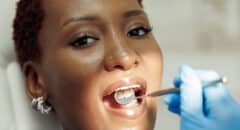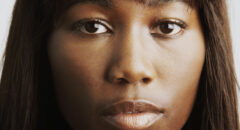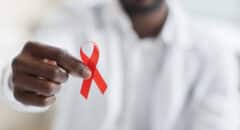
Did you know that HIV/AIDS is still one of the top 10 killers among African Americans – 5th for men, 7th for women? Furthermore, the majority of all reported cases of gonorrhea, chlamydia and syphilis occur among Blacks, according to the Centers for Disease Control and Prevention. There’s no vaccine to prevent HIV or cure for AIDS or viral STDs, but in 2015, there are so many ways to protect yourself and others from infection.
BlackDoctor.org recently spoke with Susan Gilbert, co-director of the National Coalition of Sex
ual Health, to help bring you six ways to ensure your sexual health and well-being:
1. “You and your health matter." You can shape your health and future by taking care of your sexual health today. We know you have a lot on your plate, but you need to make room for sexual health. Just like other aspects of your health – heart health, diabetes and blood pressure – it’s worth your time. Taking care of your sexual health can help you enjoy a healthier body, satisfying sexual life, positive relationships and peace of mind.
First, value who you are and decide what’s right for you. Sex is a natural part of life, and it can bring you pleasure, intimacy and joy, but it’s up to you to decide if and when you choose to have sex. Think about what you want in line with your personal values, desires and boundaries. These might change depending on your stage in life.
Treat your partners well and expect them to treat you well. Be with someone who makes you feel good about yourself, comfortable and safe. Partners should respect your boundaries and should care your about health.”
2. “Get smart about your body and protect it. There are many different ways you can express yourself sexually and some activities are riskier than others. Before you have sex, it’s important to get informed about the risks of different sexual activities and the steps you can take to help protect yourself. If you’re engaging in vaginal, anal or oral sex, barrier methods, such as the male and female condom can greatly reduce your risk of contracting HIV and other STIs.
And women, if you’re having sex, you need to think about protecting yourself from both unplanned pregnancies and sexually transmitted infections. Condoms are the only method that offers dual protection. Some women are now using two methods – a condom along with another contraceptive method, such as the IUD or pill – to provide added protection against pregnancy. African-American girls are leading the way when it comes to dual protection with 13 percent using this strategy.”3. “Get tested for HIV. Testing is the gateway to care and treatment. With care and treatment, people with HIV can lead longer and healthier lives, just as people live with other long-term health conditions, but if you wait to too long, treatment is not as effective.
HIV testing is recommended at least once for all adolescents and adults. You should be tested at least once a year if you have had sex without a condom, have multiple partners, have an STI, or share drug-injection equipment.
If you’re a man who has sex with men, you should be tested at least once a year. And, you should be tested every 3-6 months if you have unprotected sex, have multiple partners, share drug-injecting equipment, or have a partner who engages in any of these behaviors.”
MUST READ: Maria Davis: Hip Hop's Big Voice For HIV/AIDS & Black Women
4. “Get screened regularly for other sexually transmitted infections, which can increase your risk for HIV. People who have genital herpes, syphilis, and gonorrhea are more likely to get HIV. These STIs, which can cause a sore or break in the skin, disrupt barriers that provide protection against infections and may allow HIV to more easily enter your body. Regular screening is key since many of these STIs don’t have symptoms, but if they’re detected early, they can be cured or effectively treated. Regular screening for a variety of STIs is recommended for both women and men.”
5. “If you are at significant risk of HIV infection, consider taking Pre-exposure prophylaxis (PrEP), which is a drug that can prevent HIV infection. People who are at significant risk of HIV infection should talk with their health care provider about PrEP. PrEP can help you prevent HIV by taking a pill every day. It can lower risk by 92 percent (CDC). To be the most effective, it must be taken every day. When someone is exposed to HIV through sex or injection drug use, PrEP can help stop the virus from establishing a permanent infection. PrEP is a powerful prevention tool, and when combined with condoms and other prevention methods, it can provide even greater protection than if used alone.”
6. “Make sexual health part of your health care routine. Find a health care provider who makes you feel comfortable. Have open conversations about how to stay healthy, and any concerns that you have. Take charge of your health and make sure you get all of the sexual health care services that are recommended for you, including vaccines and screenings for STIs and HIV. To learn more about specific services for women and men, visit www.NCSHguide.org.”
For more great articles, click here.






